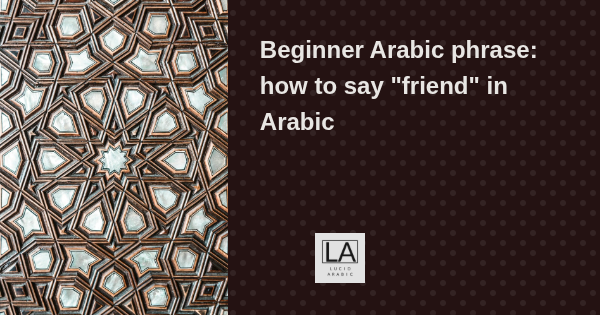Unlock the Power of Connection: Learn How to Say “Friend” in Arabic
Friendship is one of the most cherished bonds we experience in life. Whether you’re traveling, making new connections, or learning Arabic for fun, knowing how to say “friend” in Arabic adds warmth to your conversations. This post will walk you through the Arabic word for friend, its pronunciation, cultural context, and more. Plus, we’ll throw in fun facts and practical examples to help you use it with confidence.
The Arabic Word for Friend
The most common Arabic word for friend is:
- صديق (Sadeeq) – Masculine
- صديقة (Sadeeqa) – Feminine
Pronunciation Guide
Let’s make it easy to say:
- ص (Sa) – Like “s” but a little heavier
- د (dee) – Sounds like “dee” in “deep”
- ق (q) – A deeper “k” sound from the back of your throat
So, it sounds like:
- Sah-deeq (male)
- Sah-dee-qah (female)
Friendly Variations Across Arab Countries
Arabic is a language rich in dialects. While صديق and صديقة are Modern Standard Arabic (MSA), here are some friendly variations:
- رفيق / رفيقة (Rafiq / Rafiqa) – Used in Levantine Arabic (Lebanon, Syria, Jordan, Palestine). It also means “companion.”
- خوي / خويه (Khuway / Khuwayya) – Common in Gulf Arabic, especially in places like Saudi Arabia and the UAE.
- صحاب / صاحب / صاحبة (Sahib / Sahba / Sahba) – Egyptian Arabic loves using these words casually.
Each word reflects local customs and speech patterns, making your interactions feel more personal.
How to Use It in Context
In the Arab world, friendship is held in high regard, and it often extends to the whole family. It’s not unusual to call someone your friend after just one warm interaction!
Let’s explore some sentence examples:
- هو صديقي.
Huwa sadeeqi.
(He is my friend.) - هي صديقتي.
Hiya sadeeqati.
(She is my friend.) - أنت صديق رائع!
Anta sadeeq raa’i‘!
(You are a wonderful friend!) - هذا صاحبي من أيام المدرسة.
Hatha saHbi min ayaam al-madrasa.
(This is my buddy from school days.)
A Fun Fact: The Root Behind the Word
The Arabic word صديق (Sadeeq) comes from the root ص د ق, which is also the root for words like:
- صدق (sidq) – truth
- صادق (sadiq) – honest or sincere
This shows the deep connection between friendship and sincerity in Arab culture. A true friend isn’t just someone you spend time with—they’re someone you trust.
Practice Tip: Build Vocabulary Through Real-Life Use
To get more comfortable using these words, try the following:
- Label your contacts – Change the name of a close friend in your phone to “صديقي” or “صديقتي.”
- Join Arabic-speaking groups – Practice introducing your friends using new words.
- Watch Arabic dramas or shows – Pay attention to how characters refer to each other as friends.
Here are a few more example sentences for practice:
- أحب قضاء الوقت مع أصدقائي.
Uhibbu qada’ al-waqt ma‘a asdiqaa’i.
(I love spending time with my friends.) - من هو أعز صديق لديك؟
Man huwa a‘azz sadeeq ladayk?
(Who is your closest friend?) - صديقتي تساعدني دائمًا.
Sadeeqati tusa‘iduni daa’iman.
(My friend always helps me.)
The Origin of Eid al-Fitr: A Celebration of Community
Although not directly linked to the word “friend,” it’s worth noting how Muslim holidays like Eid al-Fitr bring people together, including friends. The holiday marks the end of Ramadan and emphasizes sharing, kindness, and unity—all values that enrich friendships.
In many Arab countries, Eid is a time when friends visit one another, exchange gifts, and share meals. So, when you say عيد مبارك يا صديقي! (Eid Mubarak ya Sadeeqi!)—Happy Eid, my friend!—you’re blending culture, language, and heartfelt emotion.
Final Thoughts: A Friendly Phrase With Powerful Meaning
Whether you’re learning Arabic to travel, connect with Arab culture, or make new friends, the word “friend” is an essential piece of vocabulary. From the sincere Sadeeq to the casual Sahbi, it opens the door to meaningful connections.
So next time you meet someone new in an Arabic-speaking country, don’t just say hello—call them a friend.
For more Arabic vocabulary for beginners please check these lessons:
– Say “sad” in Arabic

